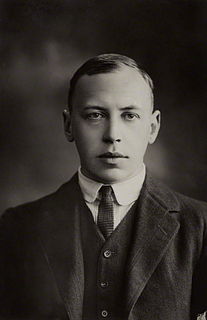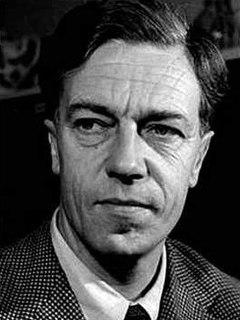A Quote by Alfred Noyes
The story of scientific discovery has its own epic unity-a unity of purpose and endeavour-the single torch passing from hand to hand through the centuries; and the great moments of science when, after long labour, the pioneers saw their accumulated facts falling into a significant order-sometimes in the form of a law that revolutionised the whole world of thought-have an intense human interest, and belong essentially to the creative imagination of poetry.
Quote Topics
After
Belong
Centuries
Creative
Creative Imagination
Discovery
Endeavour
Epic
Essentially
Facts
Falling
Form
Great
Great Mom
Great Moments
Hand
Human
Imagination
Intense
Interest
Labour
Law
Long
Moments
Order
Own
Passing
Pioneers
Poetry
Purpose
Saw
Science
Scientific
Scientific Discovery
Significant
Single
Sometimes
Story
Thought
Through
Torch
Unity
Unity Of Purpose
Whole
Whole World
World
Related Quotes
Human life is precious, sublime and meaningful. But by involvement in purely worldly pursuits, the greatness of human birth is forgotten. Without human values, life is meaningless. When there is purity in thought, word and deed, human values are practised. The unity of the three H's is essential. 'Heart, Head and Hand. ' But today this unity is absent among people, with the result that men are becoming inhuman.
When Coleridge tried to define beauty, he returned always to one deep thought; beauty, he said, is unity in variety! Science is nothing else than the search to discover unity in the wild variety of nature,-or, more exactly, in the variety of our experience. Poetry, painting, the arts are the same search, in Coleridge's phrase, for unity in variety.
It is unwise to equate scientific activity with what we call reason, poetic activity with what we call imagination. Without the imaginative leap from facts to generalisation, no theoretic discovery in science is made. The poet, on the other hand, must not imagine but reason--that is to say, he must exercise a great deal of consciously directed thought in the selection and rejection of his data: there is a technical logic, a poetic reasoning in his choice of the words, rhythms and images by which a poem's coherence is achieved.
The first man who said "fire burns" was employing scientific method, at any rate if he had allowed himself to be burnt several times. This man had already passed through the two stages of observation and generalization. He had not, however, what scientific technique demands - a careful choice of significant facts on the one hand, and, on the other hand, various means of arriving at laws otherwise than my mere generalization.
The big tradition, I think, is unity. And I have that in mind; and with that, you know, you could break all the traditions- all the other so-called rules, because they are stylistic.. and most are not true. As long as the marks are related to one another, there is unity. Unity in the work itself depends on unity of the artist's vision.
The purpose of scientific method is to select a single truth from among many hypothetical truths. That, more than anything else, is what science is all about. But historically science has done exactly the opposite. Through multiplication upon multiplication of facts, information, theories and hypotheses, it is science itself that is leading mankind from single absolute truths to multiple indeterminate, relative ones.
We must earn the peace we seek just as we earned victory in the war, not by wishful thinking but by realistic effort. At no time in our history has unity among our people been so vital as it is at the present time. Unity of purpose, unity of effort, and unity of spirit are essential to accomplish the task before us.






































